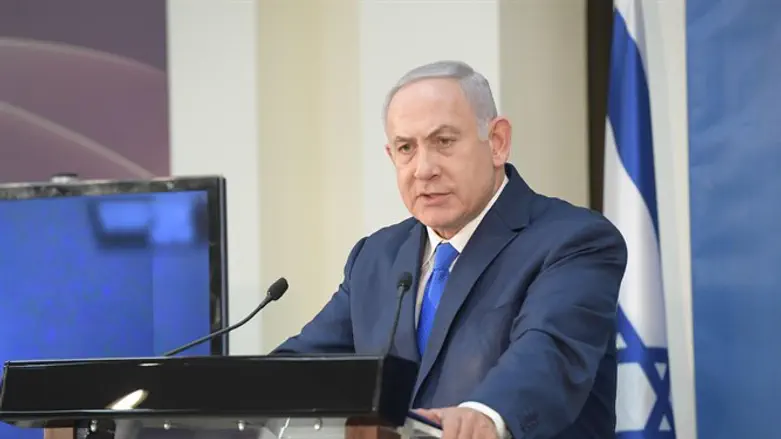
Following the announcement by ministers Bennett and Shaked on the establishment of a new party, Prime Minister Netanyahu and the Likud will try to lead an effort to reduce the electoral threshold, Hadashot 2 reported.
The move stems from the prime minister's fear that many seats will be lost as seven different lists contend for right-wing votes in the upcoming elections.
A debate on the issue will take place during the day, Sunday, in the Knesset, and Likud is considering trying to advance the proposal even without the consent of all the coalition partners.
Minister Yariv Levin spoke this morning in an interview with Galei Tzahal about the new political situation that has arisen and brought up the fear of losing seats following the establishment of the Bennett and Shaked’s “New Right” party.
"It will be difficult to run a government after the elections with parties between whom it is doubtful whether there is any difference. If we want Netanyahu to continue as Prime Minister, we must vote for the Likud," Levin said.
For most of Israel’s history, the minimum threshold for entering the Knesset was 1% of all valid votes. Prior to the 1992 elections, however, the Knesset raised the minimum electoral threshold to 1.5%.
Over the next 22 years, the threshold was raised incrementally, in the hopes of reducing the number of factions in the Knesset, creating more stable governing coalitions less dependent on small parties.
The threshold was raised to 2% for the 2003 election, then to 3.25% ahead of the 2015 elections.